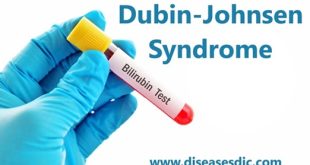Introduction
Delirium is a serious disturbance in mental abilities that results in confused thinking and reduced awareness of the environment. The start of delirium is usually rapid — within hours or a few days. Delirium can often be traced to one or more contributing factors, such as a severe or chronic illness, changes in metabolic balance (such as low sodium), medication, infection, surgery, or alcohol or drug intoxication or withdrawal. Because symptoms of delirium and dementia can be similar, input from a family member or caregiver may be important for a doctor to make an accurate diagnosis.
Types of delirium
Experts have identified three types of delirium:
- Hyperactive delirium. Probably the most easily recognized type, this may include restlessness (for example, pacing), agitation, rapid mood changes or hallucinations, and refusal to cooperate with care.
- Hypoactive delirium. This may include inactivity or reduced motor activity, sluggishness, abnormal drowsiness, or seeming to be in a daze.
- Mixed delirium. This includes both hyperactive and hypoactive signs and symptoms. The person may quickly switch back and forth from hyperactive to hypoactive states.
Pathophysiology of Delirium
Based on the level of psychomotor activity, delirium can be described as hyperactive, hypoactive, or mixed. Hyperactive delirium is observed in patients in a state of alcohol withdrawal or intoxication with phencyclidine (PCP), amphetamine, and lysergic acid diethylamide (LSD). These patients often exhibit agitation, restlessness, hallucinations, or delusions. Hypoactive delirium is observed in patients in states of hepatic encephalopathy and hypercapnia and may be more common in older adults. Hypoactive delirium presents with lethargy, drowsiness, apathy, decreased responsiveness, or slowed motor skills. In mixed delirium, individuals display either relatively normal levels of psychomotor activity or rapidly fluctuating levels of activity.
The mechanism of delirium still is not fully understood. Delirium results from a wide variety of structural or physiological insults. The neuropathogenesis of delirium has been studied in patients with hepatic encephalopathy and alcohol withdrawal. Research in these areas still is limited. The main hypothesis is reversible impairment of cerebral oxidative metabolism and multiple neurotransmitter abnormalities. The following observations support the hypothesis of multiple neurotransmitter abnormalities.
Risk factors of Delirium
Certain underlying conditions increase the risk:
- Advanced age
- Underlying brain diseases such as dementia, stroke, or Parkinson disease, particularly when there are current problems with memory
- Use of multiple medications (particularly psychiatric drugs and sedatives), or multiple medical problems
- Sudden withdrawal of a regular medication or cessation of regular alcohol use
- Frailty, malnutrition, immobility
- Advanced cancer
- Undertreated pain (although excessive use of opioid pain medication for pain control can also impair brain function)
- Immobilization, including physical restraints
- Use of bladder catheters
- Limb fractures
- Interventions, including diagnostic tests
- Poor eyesight or hearing
- Sleep deprivation
- Organ failure (eg, chronic lung disease; heart, kidney, or liver failure)
Signs and Symptoms of Delirium
Delirium involves a quick change between mental states (for example, from lethargy to agitation and back to lethargy).
- Changes in alertness (usually more alert in the morning, less alert at night)
- Changes in feeling (sensation) and perception
- Changes in level of consciousness or awareness
- Changes in movement (for example, may be slow moving or hyperactive)
- Changes in sleep patterns, drowsiness
- Confusion (disorientation) about time or place
- Decrease in short-term memory and recall
- Disorganized thinking, such as talking in a way that doesn’t make sense
- Emotional or personality changes, such as anger, agitation, depression, irritability, and overly happy
- Incontinence
- Movements triggered by changes in the nervous system
- Problem concentrating
Complications of Delirium
Complications may include the following:
- Malnutrition, fluid and electrolyte abnormalities.
- Aspiration pneumonia.
- Pressure ulcers.
- Weakness, decreased mobility, and decreased function.
- Falls and combative behavior leading to injuries and fractures.
- Wandering and getting lost.
- Long-term cognitive impairment: Accumulating evidence shows that delirium is not only a transient, reversible acute confusion, but also can give rise to a persistent long-term cognitive impairment.
Diagnosis and Test for Delirium
Confusion assessment method
Your doctor will observe your symptoms and examine you to see if you can think, speak, and move normally.
Some health practitioners use the Confusion Assessment Method (CAM) to diagnose or rule out it. This helps them observe whether or not:
- Your behavior changes throughout the day, especially if you’re hospitalized
- You have a hard time paying attention or following others as they speak
- You’re rambling
Tests
Some of the tests a doctor will use to identify symptoms of delirium are described below.
- Mental status assessment – A doctor may try to assess mental awareness, cognitive ability and attention informally though conversation or by using checklists designed to screen a patient’s mental state.
- Physical examination – A physical examination of the patient can be used to provide clues about any underlying conditions causing the delirium. The exam may reveal an infection, dehydration or alcohol withdrawal, for example.
- Neurological examination – An examination of coordination, nervous reflexes, vision and balance can help a doctor identify whether a stroke or other neurological problem has occurred.
- Other tests – A blood, urine or other diagnostic test may also help provide important clues about what might be causing it.
How is delirium treated?
Depending on the cause of the delirium, treatment may include taking or stopping certain medications.
In older adults, an accurate diagnosis is important for treatment, as its symptoms are similar to dementia, but the treatments are very different.
Medications
Your doctor will prescribe medications to treat the underlying cause of your delirium. For example, if it is caused by a severe asthma attack, you might need an inhaler or breathing machine to restore your breathing.
If a bacterial infection is causing the delirium symptoms, antibiotics may be prescribed.
In some cases, your doctor may recommend that you stop drinking alcohol or stop taking certain medications (such as codeine or other drugs that depress your system).
If you’re agitated or depressed, you may be given small doses of one of the following medications:
- Antidepressants to relieve depression
- Sedatives to ease alcohol withdrawal
- Dopamine blockers to help with drug poisoning
- Thiamine to help prevent confusion
Counseling
If you’re feeling disoriented, counseling may help to anchor your thoughts.
Counseling is also used as a treatment for people whose delirium was brought on by drug or alcohol use. In these cases, the treatment can help you abstain from using the substances that brought on the delirium.
In all cases, counseling is intended to make you feel comfortable and give you a safe place to discuss your thoughts and feelings.
How can delirium be prevented?
The following suggestions might help prevent it:
- Having a clock and calendar nearby.
- Having lots of lighting during the day.
- Limiting medicines that may cause it or any extra medicines that are not needed.
- Drinking plenty of water and other fluids.
- Trying to walk or at least sit in a chair daily.
- Reporting to doctors and nurses any symptoms of an infection (cough, fever, pain, shortness of breath).
- Family involvement in the patient’s treatment.
 Diseases Treatments Dictionary This is complete solution to read all diseases treatments Which covers Prevention, Causes, Symptoms, Medical Terms, Drugs, Prescription, Natural Remedies with cures and Treatments. Most of the common diseases were listed in names, split with categories.
Diseases Treatments Dictionary This is complete solution to read all diseases treatments Which covers Prevention, Causes, Symptoms, Medical Terms, Drugs, Prescription, Natural Remedies with cures and Treatments. Most of the common diseases were listed in names, split with categories.







